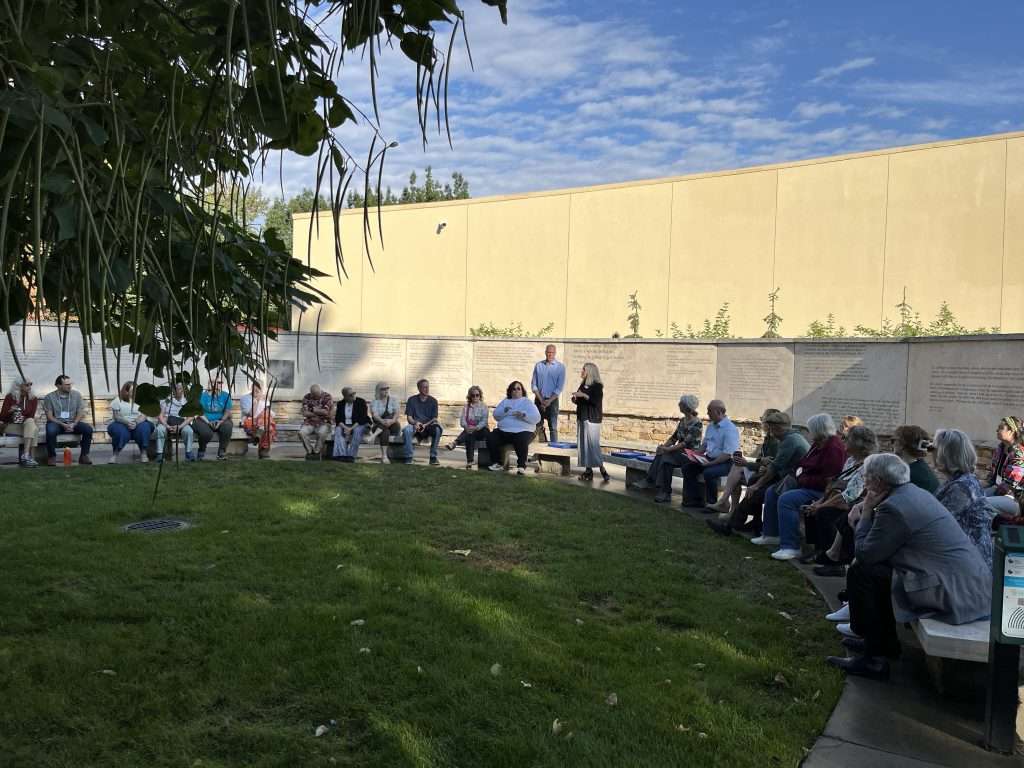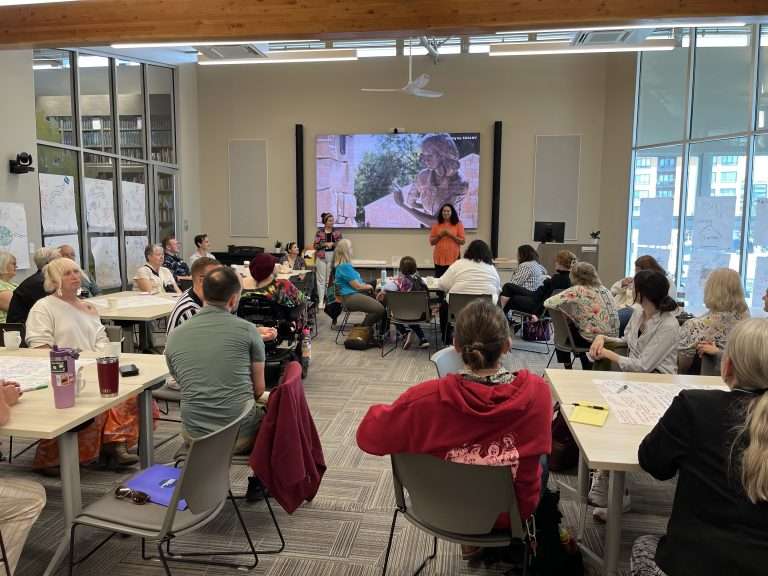
Federation Joins Efforts to Build Interfaith Unity Against Hate
Written by Rabbi Jason Levine, October 9, 2025
As extremist ideologies gain ground in the Pacific Northwest, the Federation’s Jewish Community Relations Council is deepening its partnerships to counter hate-based organizations. Last month, Rabbi Jason Levine, Associate Director of the Federation’s Jewish Community Relations Council (JCRC), joined regional faith leaders at the Interfaith Countering Hate Summit in Boise to strengthen these alliances and bring new strategies home to our community. Read his thoughts below.
Living in Seattle, I’ve heard tales of Christian nationalists and other hate-based organizations of the Pacific Northwest – the Aryan Nation in the 1970s, The Order in the 1980s, more recently Cliven and Ammon Bundy’s activities, Proud Boys protests, and more. Some parts of our state experience these threats more directly, while for others, this is a distant idea. Are these news stories of random extremists or something more pernicious that impacts our Jewish community?
A few weeks ago, I attended the Interfaith Countering Hate Summit in Boise, Idaho, with other faith leaders from across our region. The Summit, co-hosted by Western States Center and Interfaith Alliance (IA), was developed to engage local faith leaders in building partnerships to stand against Christian nationalist movements in the Pacific Northwest.

An interfaith service near the Idaho Anne Frank Human Rights Memorial in Boise.
First, a definition: Christian nationalism is the belief that the United States should be a Christian theocratic nation, and that the government should take steps to enact this vision. Christian nationalism is a non-religious ideology and does not represent the beliefs of the vast majority of Christians who are our neighbors, friends, and community members. In fact, many Christians describe Christian nationalism as a distortion of their own belief system. This distinction is important as Jews cultivate relationships and understand our potential allies.
Within the last decade, Christian nationalism has “cleaned up its act” and gone mainstream. You are more likely to see worship concerts, legal action, or legislative advocacy than rallies. One reason for this is a receptive audience amongst some in the halls of power in Washington D.C. Enrique Tarrio, chairman of the Proud Boys, shares, “Things we were doing and talking about in 2017 [such as the Unite the Right Rally in Charlottesville] that were taboo, they’re no longer taboo — they’re mainstream now. Honestly, what do we have to complain about these days?”
While in 2017, American Jews across the country cringed in disgust at the chants of “Jews will not replace us”, how we engage with today’s Christian nationalists is not always so clear. Those who still unapologetically embrace classic antisemitic ideologies and stereotypes make for easy condemnation. However, others, in their pro-Israel messages, rallies, and fundraisers for Israel and professed love for Jews, present a more complex picture. In a moment when many Jews feel so alone in the world and desperate for allies, this seems appealing. Yet, this complexity requires honest conversation and reflection within the Jewish community. Because the ultimate objective of all Christian nationalists, regardless of their outward-facing presentation, is a vision of Christian supremacy. And being pro-Israel does not excuse age-old antisemitic ideas and attitudes.
So what are the takeaways from my time at this conference, and how does this impact our work locally at the Federation’s Jewish Community Relations Council?
First, the JCRC and Jewish community at large must be aware of threats to Jewish well-being, regardless of where they appear on the political spectrum. That said, understanding the danger to Jews from one end of the political spectrum does, in no way, ignore or minimize threats that arise elsewhere. We can’t afford to limit our awareness of antisemitism in one area to the exclusion of another. At the conference in Boise, it was unbelievably powerful to spend time with other clergy and community leaders, especially those who deal with and experience Christian nationalism more directly and frequently. We would do well to keep our eyes wide open, heed the warnings, and learn from their experience.

A discussion group of interfaith leaders at the Wassmuth Center for Human Rights in Boise, ID.
Second, this is a moment to reassess and recommit to genuine partnerships. Groups that claim to support Jewish and Israeli causes are alluring, especially in a time when solidarity is hard to come by. And, it is crucial that we partner with groups that will center Jewish voices and experiences in their allyship and share our commitment to working towards a more just, equitable, and inclusive world. As part of our interfaith and intergroup work, the Federation’s JCRC is deeply committed to building genuine partnerships with local Christian communities. We are engaging with local Lutheran, Catholic, LDS, Baptist, UCC, Evangelical, and many other Christian leaders. This work can be complex, but the relationships are honest, thoughtful, intentional, and can stand the test of time — creating long-term safety and well-being for the Jewish community and our allies.
I learned a lot from a few days in Idaho. The lessons of greater awareness and deepening partnerships with faith leaders across the region are crucial tools against Christian nationalism and other forms of hate. I look forward to using these lessons to work with faith communities as we confront rising extremism and antisemitism, resist divisive ideologies, and support the wellness and safety of people in all parts of our state.